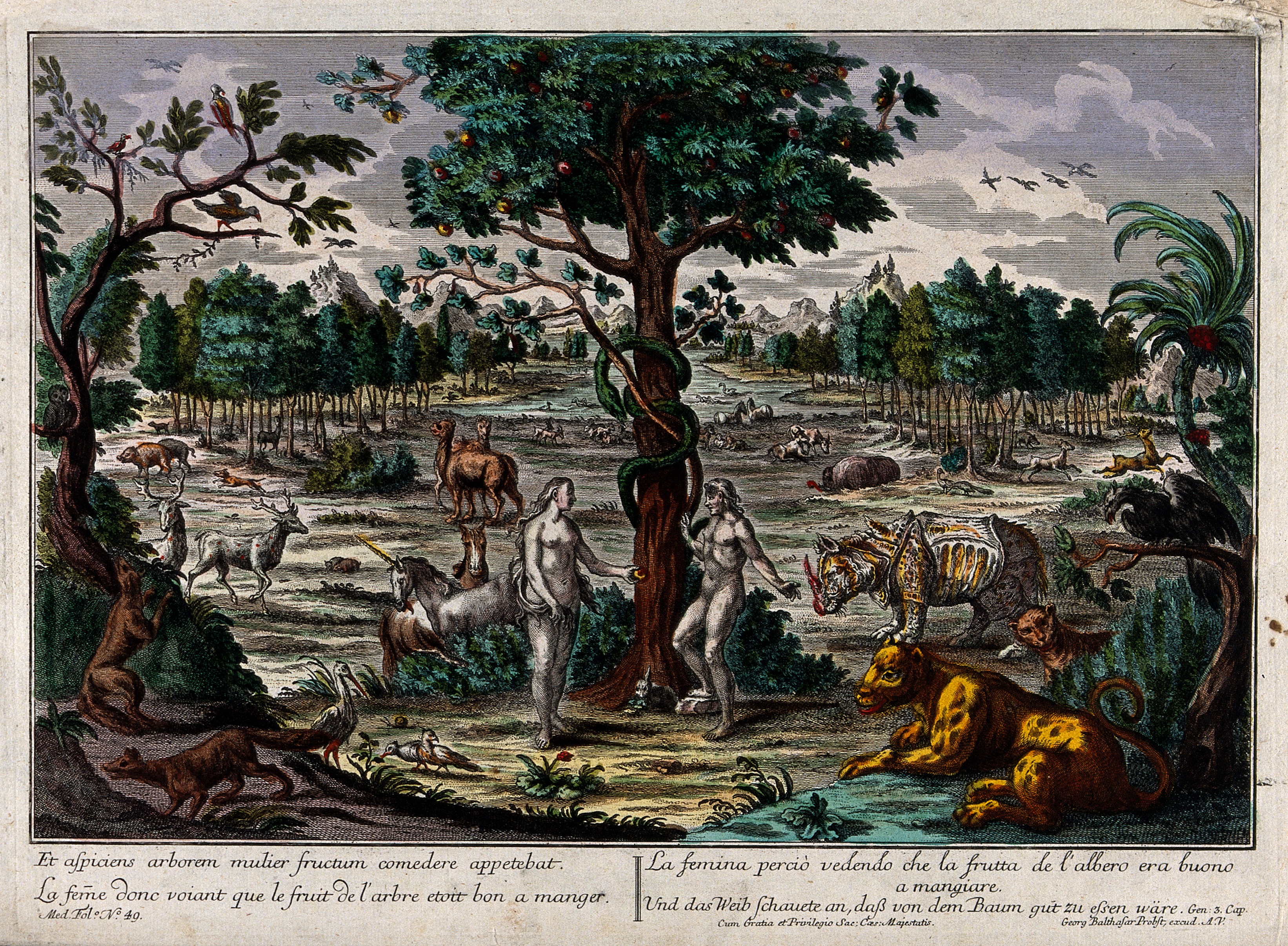Our dialogue with Anaiah, an educated Jew from the 500’s B.C., continues.
St. Barnabas Blog: You were going to tell me a story about how the world, created by a good God, came to be a place where sin, evil, and death are found. 
Anaiah: That’s right. The story is found near the beginning of the book of Genesis. After God has created a good world, as his final (one might say crowning) creation, he made man, male and female. In those days, God and man spoke together. And God gave man something precious: a rule, one simple rule to follow.
SBB: What was the rule?
Anaiah: There was a special tree in the garden where man lived, called the tree of knowledge of good and evil. The simple rule was not to eat from that tree. (Genesis 2:15-17)
SBB: Why did God make that rule?
Anaiah: Remember how we saw, in the case of Abraham, that God’s plan is to bind us to himself through obedience, submission, and sacrifice. This is another example of the same approach. God made a good world for man to enjoy, but man’s glory was to obey, and God made this as easy as possible by giving him only one rule.
SBB: The idea that man’s glory is to obey is somewhat counter-cultural in my own time.
Anaiah: So I have seen.
SBB: This story of Adam and Eve is well known to us, and we know that they did not obey God’s command. How did this happen, if man was part of God’s good creation? Does Adam’s disobedience reveal a flaw in creation?
Anaiah: That is a very good question and it leads us into the most interesting part of the story. “Now the serpent was more crafty than any other wild animal that the LORD God had made.” (Genesis 3:1) This introduces the pivotal figure of the serpent. He asks the woman, “Did God say, ‘You shall not eat from any tree in the garden?’”
SBB: Who is this talking serpent?
Anaiah: He represents Satan, a spiritual being who has rebelled from God and seeks to disrupt God’s creation and to destroy man (his name means “the adversary”). His appearance puts the situation of Adam and Eve into a cosmic context. He tempts Eve to eat from the forbidden tree and she in turn tempts Adam to do the same. So Satan succeeds in getting mankind to disobey God, and this leads to the entry of sin, evil, and death into the world. 
SBB: Is it important that the serpent is a spiritual adversary rather than just a particularly talkative creature in the garden?
Anaiah: Yes, for this reason. The physical world as God has made it is good throughout, as is mankind’s original nature. Man’s nature is to make choices and take actions based on his physical surroundings. In a good world with a good nature, it does seem puzzling that mankind would ever go astray. Therefore it makes sense that the initial impetus for sin should come from outside that physical creation, from a spiritual being. [Anaiah anticipates here an argument from St. Augustine summarized in the commentary on Genesis by R. R. Reno, Brazos Press, 2010, pp. 77-85.]
SBB: Doesn’t the story just push the origin of evil one stage farther back? Has the story explained anything? How did the serpent, or Satan, come to disobey?
Anaiah: Spiritual beings have the gift of free choice, not conditioned by physical surroundings. It is perhaps mysterious that any creation of God would choose to turn against him, but in the case of Satan, such a choice would not suggest any defect in the physical universe that God has created.
SBB: So are we just playthings of forces beyond our control?
Anaiah: Here is a great mystery. We are affected by spiritual forces that are beyond our control, but we play a crucial role in the universe because we are both spirit and body. God has made us in some ways lower than the angels but he has crowned us with glory and honor by making us central to his plans. Satan attacks us as tempter and adversary because he wants to disrupt God’s plans through us.
SBB: So what you are saying is that sin, evil, and death came into the world because a spiritual being wishes to disrupt God’s plans, and that being knows that mankind is central to those plans?
Anaiah: That is right. And now that sin, evil, and death are in the world, everything you and I do has cosmic significance. We saw that already with Abraham and the promise that through him all people would be blessed.
